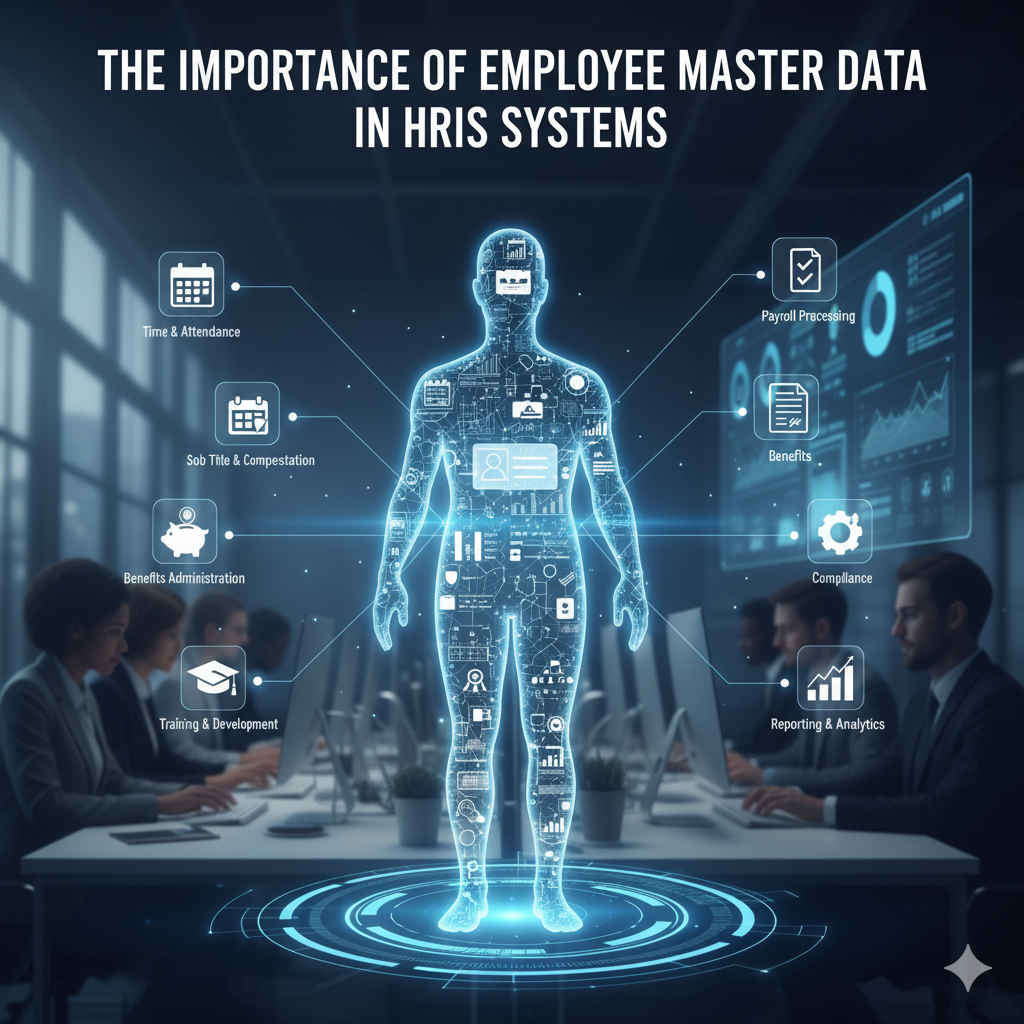Address
Kaypian, San Jose Del Monte City, Bulacan Philippines
Work Hours
Monday to Friday: 8AM - 6PM
Weekend: 10AM - 5PM
Address
Kaypian, San Jose Del Monte City, Bulacan Philippines
Work Hours
Monday to Friday: 8AM - 6PM
Weekend: 10AM - 5PM


Integrated HR. Accurate Payroll.


Integrated HR. Accurate Payroll.

In every organization, employee data is at the heart of human resource management. From recruitment and payroll to performance tracking and compliance, accurate employee information drives every HR process.
That’s why modern businesses — especially in the Philippines — are turning to Human Resource Information Systems (HRIS) to centralize and manage what’s called employee master data.
In this article, we’ll discuss what employee master data is, why it’s so important, and how HRIS systems make managing it faster, more accurate, and more secure.
This includes:
Essentially, it’s the central record of truth for every employee in your organization.
An HRIS (Human Resource Information System) consolidates all employee master data in one secure, digital platform. Instead of relying on spreadsheets, manual forms, or scattered files, HRIS platforms — such as PinoyCode Complete HRIS System — allow HR teams to easily store, update, and access information in real time.
This improves accuracy, reduces manual errors, and ensures consistency across payroll, timekeeping, and compliance modules.
📊 1. Centralized and Accurate Employee Information
With an HRIS, all employee data is stored in a centralized database. This means every update — such as a promotion, salary adjustment, or department transfer — automatically reflects across the entire system.
No more data duplication or conflicting records between payroll and attendance systems.
Key Benefits:
🔐 2. Enhanced Data Security and Compliance
Handling employee data means handling sensitive personal information.
A well-built HRIS uses secure cloud storage, encryption, and access control to ensure only authorized users can view or modify data.
For Filipino companies, this also helps comply with the Data Privacy Act of 2012, protecting both the organization and its employees.
⚙️ 3. Automation Across HR Functions
Employee master data connects directly to key HR modules:
By automating these processes, HR teams save time and reduce the risk of human error — while ensuring every action is based on verified employee data.
📈 4. Data-Driven HR Decisions
With a well-maintained HRIS database, HR leaders gain access to powerful analytics — from turnover rates to employee demographics and skill distribution.
This helps management make smarter decisions about hiring, training, and workforce planning.
For example:
Employee master data isn’t just storage — it’s a strategic asset for HR planning.
🕒 5. Efficiency in Employee Lifecycle Management
This leads to faster HR processing, better communication, and improved employee experience.
🚀 The Future of HR Data Management in the Philippines
As Filipino businesses embrace digital transformation, HRIS systems are becoming essential tools for managing people efficiently.
By maintaining accurate and secure employee master data, companies not only comply with regulations but also gain a competitive edge through data-driven HR strategies.
Whether you’re a startup or a large enterprise, investing in an HRIS ensures your employee data remains organized, protected, and ready to power your next stage of growth.
Employee master data is the foundation of every HR process — and an HRIS system ensures it stays accurate, accessible, and secure.
By digitizing employee information, Filipino companies can streamline payroll, enhance compliance, and make smarter HR decisions — all while building a more efficient, future-ready workplace.